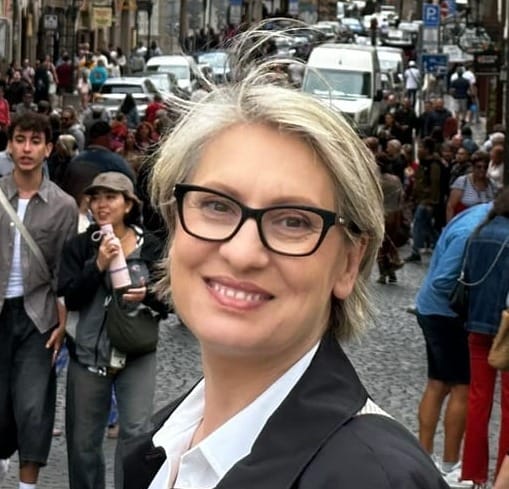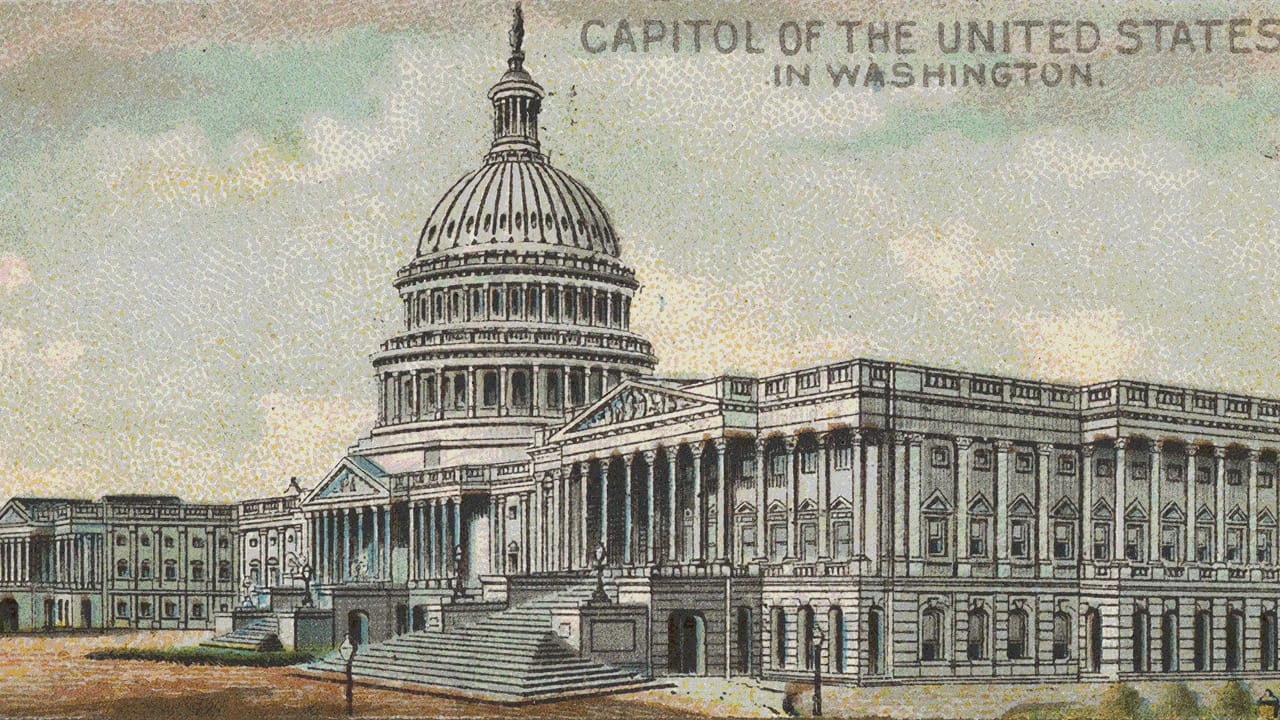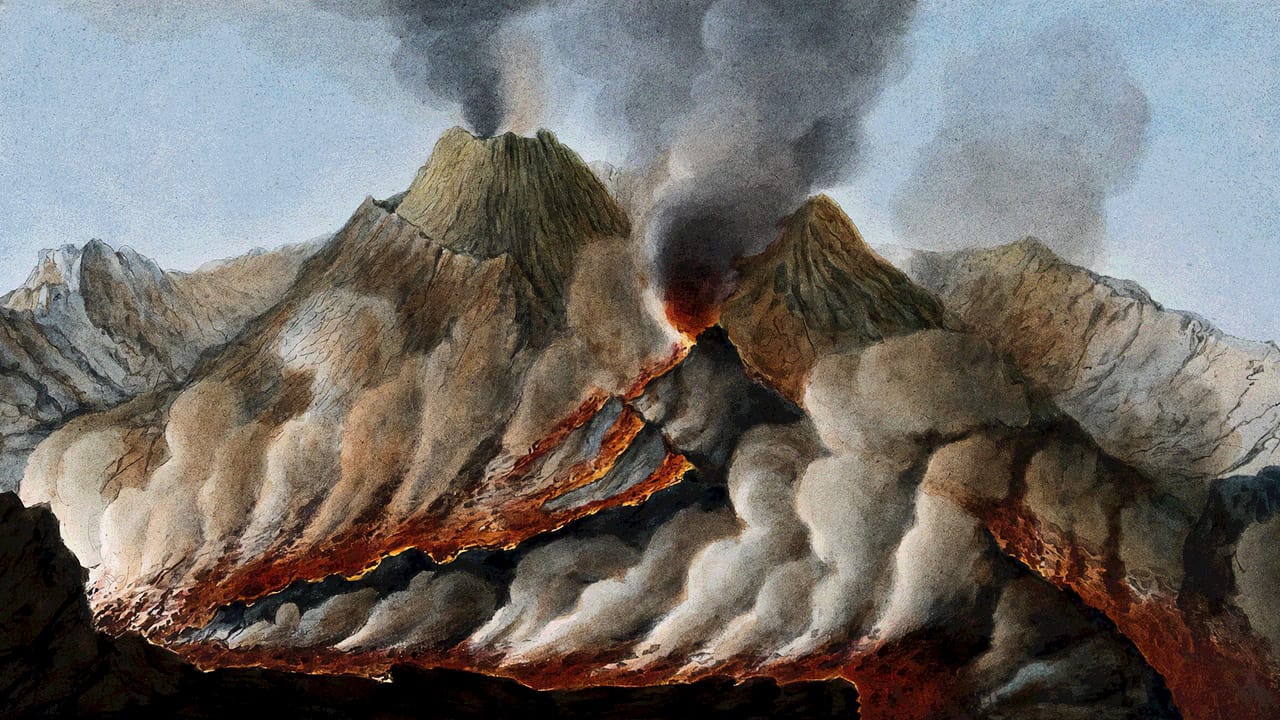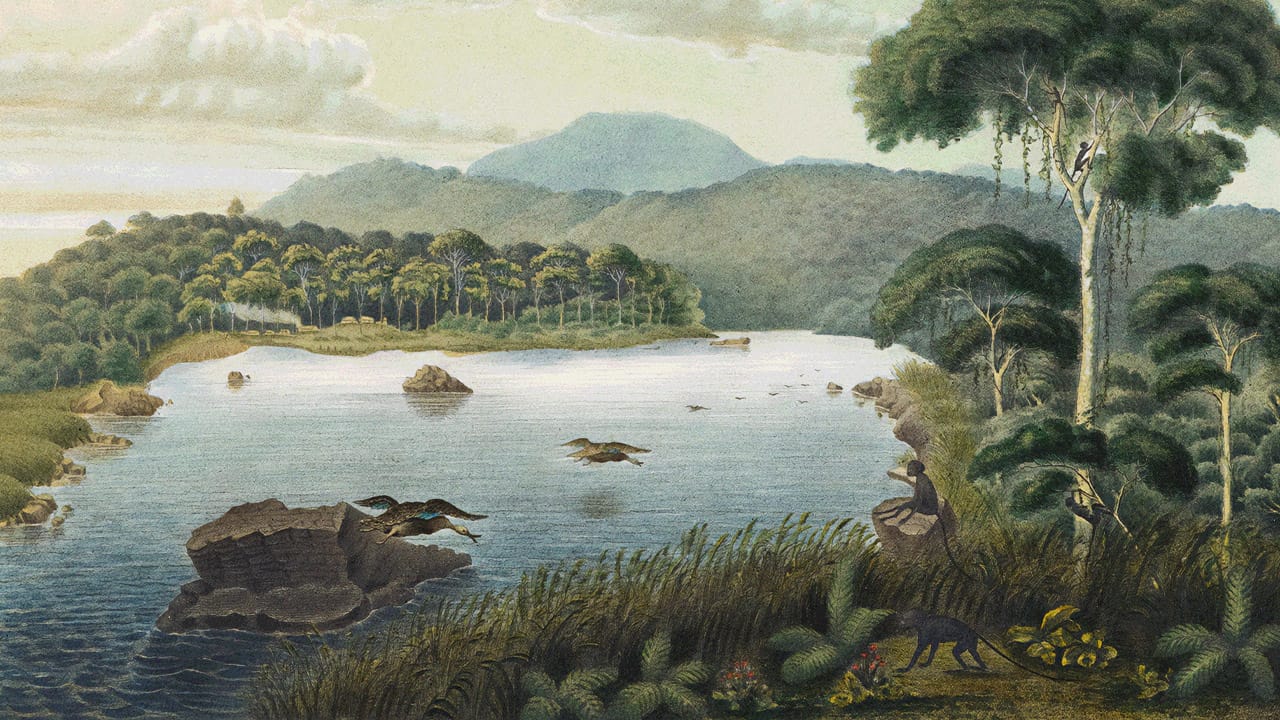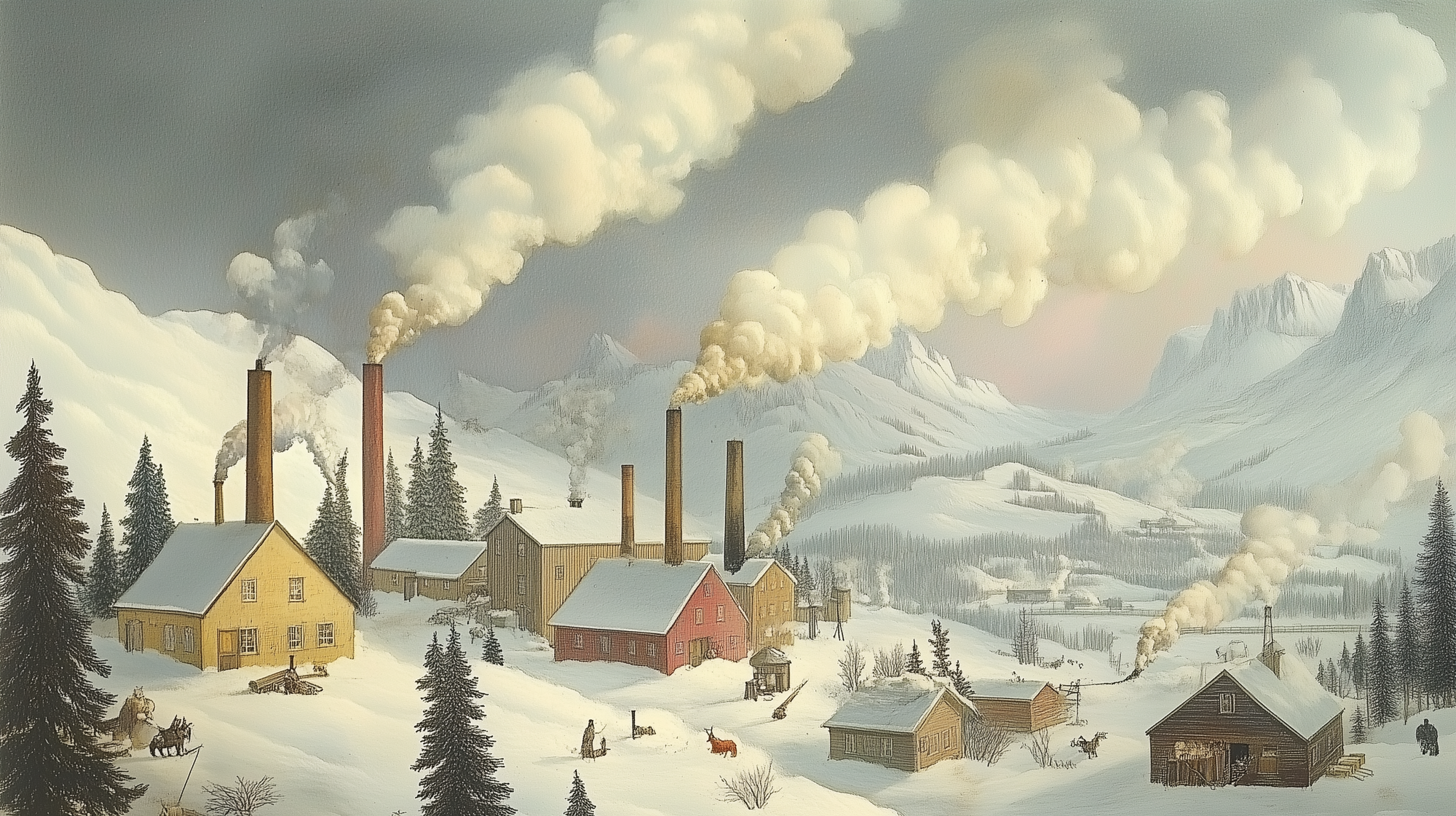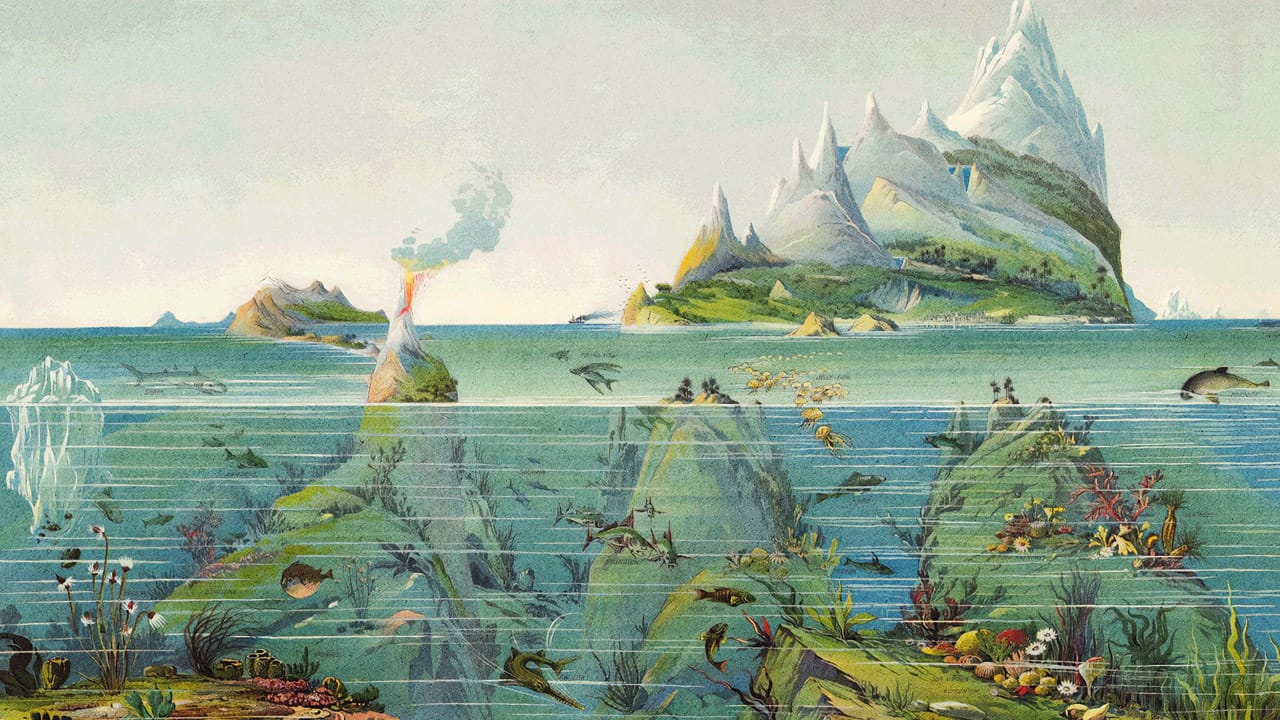Words Have Consequences: TIME's Aryn Baker on Evolution of Climate Language
Senior correspondent Aryn Baker discusses how journalism adapts climate terminology for different audiences and cultural contexts
Aryn Baker, Time, online interview, December 2023
Aryn Baker is the senior international climate and environment correspondent at TIME. She covers the human impacts of climate change, as well as food security, oceans, climate migration, and extreme heat. She lives in Rome, and has reported from more than 50 countries, as TIME's Africa bureau chief based in Cape Town, the Middle East bureau chief based in Beirut, Afghanistan and Pakistan bureau chief based in Kabul and as Asia correspondent based in Hong Kong. She has won multiple awards for her writing, reporting, and documentary film work.
Djurdja Jovanovic Padejski: The first question is about how you use environmental terms in your reporting. Is this a conscious process or do you just do it spontaneously?
Aryn Baker: I would say it's very conscious. Well, I know I would say it's probably both. I mean, this is the language that I am immersed in, and throughout my reporting, everything I read. So it is. The background to the way my brain sees the world at this point. I've been doing climate coverage for three years now, and even before that, I was looking at Africa coverage through a climate lens. So I would say that when I write my stories I have the basic terms already at my fingertips.
Yet as a writer, I have to think of multiple things. I don't want to repeat phrases too often. You know, I also have to be aware that my audience has certain expectations and I have to clarify certain terms as well. So the concept of boilerplate is there. At this point, I have probably about 70 different ways of describing what the Paris climate goals were. The, you know, 1.5 Celsius—all these things are always like a boilerplate at my fingertips that I always have to insert in my stories in order to situate the reader, in case they have been living under a rock for the last 30 years.
I am conscious about the terms I use, whether it's generally climate change, global warming to a lesser extent, or the idea of a climate crisis. That's something I use only in very specific circumstances because, while I know papers like The Guardian have moved on to that, I fear that for my audience, which is much more general and not necessarily more centrist, I should say it can be an alienating term. So unless I'm specifically speaking about a climate crisis or a specific situation, I tend to avoid that term. Same with global warming, I use that only when I've used climate change already like 3 or 4 times in a story. Just because global warming, while accurate, also invokes the sort of conservative backlash like, "But we're also getting colder weather." So, you know, I try to be more precise.
DJP: Besides these pitfalls that the entire denialism industry is presenting to journalists, the issues are incredibly complex just by their nature. That must be a big challenge for reporters to convey the complex environmental issues to a diverse readership. In that sense, how do you select the terminology and how do you convey that? How do you choose the language to convey those issues?
AB: I try to avoid any jargon when I do have to use something like referencing 1.5, although at this point I think my readers are educated enough to expect a lot. When I write for an online newsletter, I feel that that audience is a little bit more educated versus when I write bigger stories for the magazine.
With that caveat in place, like when I talk about 1.5, I always have to say, "1.5°C through the conversion and Fahrenheit degrees higher than pre-industrial averages." The point at which and then I have to say "scientists say," and I always want to say "scientists say." So it's not an opinion. It is a researched fact—scientists say. And I will link that with, for example, humans will be increasingly unable to adapt to floods, wildfires, or other. I list the most recent examples of what we've seen globally to ground it in experience.
I guess my idea is like - climate change is something related to what you, the reader, have seen in the last six months in terms of, you know, climate catastrophes or weird weather or El Nino or whatever it is. I want to try and meet my readers where they are, making examples to making it real rather than just relying on jargon.
DJP: When you do that, do you feel like the language you have available can express sufficiently the complexity of the issues?
AB: As a journalist, I feel like my job as a translator, right? I translate the science and what's going on in one part of the world, or just science to somebody in another part of the world. By definition, I have to simplify my language to explain complex subjects, so I don't feel like there is an existing palette of language or terms that I should turn to or I should choose from.
I think my job is more to use regular language to translate complicated subjects, and that might mean more explanation. Um, so instead of using one time, I might spend, you know, three sentences explaining what it means. Whether or not terms exist to explain the complexity—I think that's a kind of a weird way. It's the wrong question. I mean, my job is not to rely on easy terms but to make things understandable.
DJP: In which way do you feel that words and phrases you use when you do that play a role in how the readers perceive it? What is the relationship between the terms and the content?
AB: I mean, I guess the terms have become shorthand. For what? Climate conscious people think they know. I sometimes feel that people may not fully understand the meaning. They might say, or they might throw around The Paris Climate Agreement or 1.5 C, but actually, they don't always know what exactly that means. Because I even find myself quoting, you know, I'll quote a scientist who will, like, throw off a term. And I'm like, hey, I know what that means. It's like, actually, hang on, do I really know what it means? Can I rephrase it in my own words? And if I can't do that, then I assume that most readers can't do it as well. I think sometimes the shorthand we use doesn't explain enough. Maybe the shorthand doesn't explain the complexity, because there's no way it can. By shorthand, we simplify in a way that maybe it isn't possible to do.
DJP: Do you deploy your own style guide? An environmental style guide?
AB: At Time we do not have a formal style guide specifically related to climate coverage. We have a basic style guide for the whole magazine. But this conversation came up probably 5 or 6 weeks ago about whether we had a preference for terms or should focus on certain terms. And I think, I mean, our team is very small. It's just three, um, three correspondents, uh, and an editor. We sort of decided that. It was contextual and each journalist was allowed to choose his or her terminology based on the context, rather than having a top-down style.
DJP: What is your approach to ensure the accuracy and consistency of environmental terminology across different stories?
AB: It's the language I fall back on all the time. It's the consistency of my writing. It would be interesting to see if my terminology has evolved over the three years. Because there isn't a consistent guide. It's more based on my gut.
It also reflects what you're reading as well. Like I read both the mainstream press and the scientific press extensively. I'm sure I'm also just sort of distilling what is a little bit in the zeitgeist in terms of climate terminology.
DJP: When you're writing, are you conscious of how you're attributing agency to different stakeholders in environmental narratives? Especially when you are covering areas that are already in the biggest danger at the moment. Is there a conscious process again about the agency?
AB: Yes. I wouldn't say precisely in terms of terminology. I'm very conscious of making sure that I have voices from the impacted populations. I think that is a real key point for me that I always seek to do in my big reported stories. Um, I have the luxury of time to do that. And that includes agency. But more to the point, it means not portraying people as victims. I want to stay away from that as much as possible. Because it takes away agency from people. I don't want to see stories reduced to, ‘oh, the poor suffering people from the global South who can't do anything to help themselves.’ We all have to help them.
I think that defeats any long-term change that I would like to see. Now that might make me more of an advocate or an activist than a journalist, perhaps, but I think that's important to show the role that everybody has in adapting to or stopping climate change. That said, in terminology, I should probably be maybe more aware. I haven't really thought about it in terms of terminology. In journalism in general, as you well know, you don't want to have passive sentences. You don't want a non-named entity doing something like this happen to somebody. You want somebody taking action or somebody doing something to somebody else, so that kind of construction I'm usually aware of.
DJP: What is the most important environmental issue the media should address today, in your opinion?
AB: Misinformation. I would say misunderstanding, misinformation, and greenwashing. I put misinformation, and greenwashing on sort of a spectrum, but, I feel that industries and companies, and manufacturers are starting to understand that consumers are more educated about climate change and the risks and that consumers are desiring to do better in terms of their consumption patterns, but they are not.
But also, I think companies understand or hope that consumers are not so well educated. Or that they are perhaps not willing to take the time to educate themselves to investigate claims of sustainability. Green. I mean, so many of these terms that I'm seeing everywhere, um, you know, ‘made of 100% ocean-bound plastic,’ or ‘climate neutral’ or ‘plastic neutral’ or, you know, good for the environment, good for nature, good for planet Earth, or just that it's got it's the packaging is made out of cardboard or green leaves on it is enough to make consumers mistakenly think that they're doing better. And I think there's a real cynical use of that ignorance for everything from how we fly to how we drive, to how we buy.
I think that is very important and difficult task for climate journalists to approach. And then the bigger picture, of course, is the misinformation side, the idea that you can have carbon capture and disposal CCD or CCS sequestration to counteract or obliterate emissions from fossil fuel power generation. There are all these new shiny technologies that people say they can use to mitigate the impacts on the climate and that in general, technology alone will be able to save the climate, and thus we don't need to make any difficult decisions in terms of reducing fossil fuel consumption, for example. I think all of these things are messages that we constantly have to counteract. Obviously, it is in the interest of the status quo or the companies that profit from the status quo to keep people ignorant or confused about the real needs to impact climate change.
DJP: And this is not directly related to my research, but I'm really curious because you are a foreign correspondent and you have been for a very long time. Would your answer be different if I asked specifically for Europe or the U.S.? In this sense, is there a significant difference?
AB: Yeah, I guess in this case, what I mean is I write for an American magazine. My editors are American and I would say a small majority of my readers are Americans, so I do have to look at it through an American lens. And so, yes, I would say that that is my answer for an American audience. But when I am talking to a European audience or a global South audience, no, that's probably not the most important.
I feel like a European consumer is better educated and less consumer-oriented. I don't know based on what. That's just what I feel like living here. I could be completely wrong, but I do feel like there is less of that perpetual growth ethos that dominates America. There's the fact that manufacturers and companies cannot get away with greenwashing or bullshitting nearly as well, because there is that overarching authority of the EU, but also consumers are more aware. The EU is the most rigid in terms of emission standards for vehicles, for setting the stage for the energy transition because the EU is not beholden to any one political group or party or electorate for that matter. It's looking out for the betterment of all the people that are members, members of the EU. The political structure is completely different.
AB: Okay, so let me just qualify the most important thing, I think. Greenwashing and misinformation are one of the most important things. I think the big picture thing that's also really important for climate journalists to impart is how it impacts all of us. That wealth or ease, or living in a wealthy country versus a developing country, is not enough to protect you from what's happening with climate change, which is one of the reasons why I often write about heat. Because heat hits everyone. Flooding and sea level rise are very limited to low-lying coastal areas or impoverished areas. Heat waves don't care and there are no borders. I think it is important to educate an audience that this happens to you no matter who you are.
DJP: Is this issue, in your opinion, given enough space? I mean, it's obvious you think it's not, but, uh, how much space is given to this issue in the news, in your opinion? In the US news.
AB: I would say probably not enough. The reason is that we as journalists are tasked with providing factual information, but we are also entertainment. We are also an escape. We are what people do when they're bored on the subway and they want to click on a story.
I think there is a tendency to not overwhelm readers of the audience with the doom and gloom like you're all going to die type stories. I think we're going to include or put more weight on stories that offer solutions or agency on the side, or options for agency on the side of the reader.
We're going to give more weight to those because it's what the reader wants more. When you have a story that's about how temperature extremes are expected to increase twofold over the next ten years, people don't click. But when you say ‘here's a new solution to help people deal with climate change,’ they will. You have to also think about what people want to read and again, meet them where they're at. Some journalists might decry that, but I also understand that what I produce is a consumer product as well.
DJP: How do you see your role in shaping the public discourse on environmental topics?
AB: I think it's important for me to give bigger context, to understand or to see the bigger picture. Well, twofold: to see the bigger picture and where you, the reader, fit into that picture. So how this might impact you going forward, what your movements are, your decisions, how they impact the rest of the world, what you can do to have an impact. I think it's providing a bigger picture context to the story.
DJP: This is the question that is related to any type of journalism, but I think it's important and obvious in environmental journalism. How do you find this fine line between activism and environmental journalism and between reporting and educating?
AB: Reporting and educating, I would say there isn't. I don't see that there's a fine line between one or the other. I think they are a unit. Activism and advocacy are harder ones. I used to cover the Middle East, I used to cover Israel and Palestine. I think there was a very clear line on how you reported on the situation. While I had my own opinions about what was going on, I worked very hard to keep it out of the story and report just the situation on the ground. Whether I was reporting from the Palestinian side or the Israeli side or, you know, Syrian or whatever. Climate is tougher because, for one, I am personally invested as somebody who will be living on this planet for hopefully a long time, and who has a child who will be living on this planet for even longer.
So it's very hard to step away and remove this need for the urgency of action and for making for skewing or not skewing, for using my stories to push a reader towards. Choices or activism or elections or decision-making that would support the climate. I'm biased in favor of stopping climate change.
DJP: Yeah, that seems inevitable. How do you feel about The Guardian’s guidelines?
AB: I'm glad they're doing it. I think it plays a role. The Guardian is a very left leaning paper. I mean, left and right probably doesn't have that much relevance in the climate space, but they know their audience and I think they're doing the right thing. I agree with the stance they're taking and the terminology they use and the urgency that they impart in all of their climate reporting, whether it's on food systems or, you know, international events. I think that's great. I can't go that far with my writing because I know my audience isn't that same audience. I have to imagine what my audience is - more centrist or less informed, or maybe more reactive. I have to hold their hand a little bit more, not to alienate them with bad news all the time. I have to find that balance between, solutions journalism and kind of pointing at the fact that the sky is falling. But I also have to understand that not everyone who comes to Time is already pro-climate. I have to educate them and that's where I use things like’oh, you know, you can't hire people to work when it's 120 degrees.’ You know, it's a business problem. It's not a climate problem, it's a business problem. I have to find ways to reach an audience without going straight into the climate side of things.
DJP: What do you think about the relationship between environmental, political, and economic challenges? When you are reporting on the story that relationship must be one of the most present issues, to describe who's responsible. Who's guilty? Who's in charge etc.
AB: I mean, again, like going back to what I said about context, I think the readers have to understand that just as climate change doesn't happen in a vacuum, neither do other parts of our lives. Policymakers, readers, audience, businesses — their decisions will be informed by how the climate is changing going forward. Policy isn't just about stopping climate change or shouldn't be just about stopping climate change, but it should also be about consequences. This is the reality you are seeing - a rapid escalation of drought and heat waves in parts of Africa that are going to drive migration. Migration is going to come to European shores or American shores if we're talking about Latin America. This is not just a climate issue. This is a migration policy issue. You can almost take the climate side out of it and say, this is something that policymakers need to be thinking about. This is just the facts on the ground. This is not in this case. It's not saying stop doing emissions. It's saying to plan for ten, 20, 30 years in the future where we already know that this problem is going to be there.
It's complicated and intertwined. It's easy to point the finger at fossil fuel companies. That's the most obvious villain in these stories. It's also so easy to rip away and undermine as an argument because you also have to think about the hundreds of thousands, if not more, jobs that are working directly with fossil fuels in the United States and then the ancillary jobs that go with it, the manufacturing, automobile manufacturing, and so on.
And then on the political level. It's like, yes, we could say that Biden needs to make one simple policy change to fix all of this, but Biden can't do it because he has to worry about the electorate and 50 different states and, you know, Congress. I think that, like trying to unpack those different strands of blame, and it's so complicated that maybe it has to be done like bit by bit, story by story. I mean, you can do it every once in a while if you're doing a big story on the IRA, for example. You know, perhaps you can break it down. Like where policy needs to happen, where, you know, manufacturers need to step in, and where voters need to think. But generally, you just have to pull a strand at a time and a story. It's very difficult to tackle.
DJP: How much does the ownership in the media and the advertisers influence affect environmental reporting?
AB: That's an interesting question. I read a lot of newsletters I subscribe to, probably 5 or 6. Axios, Bloomberg, The New York Times, Washington Post, Conversation. It's very interesting. They're very hard-hitting analyses, opinion pieces, and reporting stories in them. Very strongly pro-climate. Everything that I would say in terms of liberal that I would agree with personally in terms of like very insightful analysis, but half of them are sponsored by Chevron, Shell, BP. And it's so funny because you'll see an ad in the middle of a whole thing that's like carbon credits. It's like BP making the world greener through carbon credits. I think it's kind of funny that you have fossil fuel companies, in this case, the obvious villain. We can just use that as a kind of shorthand for anybody else can see. Climate reporting is a good place to advertise. What I can't figure out is, does it work for them. But I think it also points to the fact that while these newsletters are clearly getting substantial funding from fossil fuel polluters it doesn't seem to have changed their reporting. They're still very hard-hitting. So it's this weird tango that I don't quite understand. I don't understand why Shell and Chevron are still advertising with these, but they seem to get something out of it. I think if a newspaper was dependent on one single source of advertising it might have more of an impact. But in a robust media world, I think it is not so black and white that people are going to pull their punches on reporting on fossil fuel companies or other sources of climate change just because of their advertisers. Now that said, at Time, and this is part of our agreement, we do not accept that kind of advertising because we do think it's a conflict of interest. We are turning away a lot of money that could be used for reporting, but we just felt that it confused the message so we don't do it.
DJP: Yeah, I agree with you. I think it's part of what you mentioned earlier. And by the way, I love what you said about misinformation. Um, I think that actually, that's why they do it because that's how they create misinformation. Because no matter how proper reporting is, if it's sponsored by somebody like that, they're giving the false impression ‘we're still here.’ We're in a conversation normalizing what should not be normalized. I think that's a wave that's I think typical for environmental reporting since the beginning, which is like normalizing things that sound horrible, just normalizing them. Laughing at Greta Thunberg, like, oh, she's like a ‘too passionate’ kid and undermining her. That's part of the same narrative. Fossil fuel companies are like: Oh yeah, news say their thing, but we're also here and we provide jobs and we do so many great things so we are in conversation. I feel that the relationship between jobs and the environment is something that we should address the most.
AB: Yeah. Because ultimately, the most important thing for a person's life, even personally, is like, how am I going to get food on the table? How am I going to take care of my kids? And yes, I care about climate, but ultimately that is not the immediate threat. And so you're going to deal with the immediate threat first. And, you know, fear of losing a job is very, very real. I used to work in Afghanistan for a really long time. And everyone's talking about women's rights. And you can't have the Taliban gone back because women can't go to school. And it's like, yes, but at this point, women can't go outside or nobody can go outside without getting like, shot at. So ultimately you would want the Taliban back because they provide security and you'll deal with the rest later. It's like Maslow's pyramid of needs.
DJP: Can you list, two, or you can list 10 or 15, the most important or relevant or significant in any sense, environmental terms right now?
AB: Carbon. I don't I can't rank them, but carbon credits and or plastic credits. But that's because I'm working on plastic stories right now. Carbon capture and storage. What are the carbon border adjustments? Um, no, that's probably less important. That's more wonkish. 1.5°c versus two-point um. Business as usual, versus kind of a lower carbon future.
Global heating. Global warming. Global warming is old—never mind. I mean, heat waves, wildfires, storms, hurricanes, and flooding. All these things are—they're not specific terms, but they remind us of what is at stake.
Sustainability. Greenwashing solutions.
DJP: I have one more question for you. So, uh, there are no right or wrong answers to this question, and it's important that you just say the first thing that comes to your mind when I say the word.
DJP: Resource.
AB: Regenerative.
DJP: Nature.
AB: I'm. I'm thinking of other things nurture-like. But that's not what it's okay. No no no no no no.
DJP: Complexity.
AB: Simplicity.
DJP: Socio ecological systems.
AB: Confused.
DJP: Pipeline.
AB: Oil. Gas.
DJP: Carbon footprint.
AB: Impact.
DJP: Environmental justice.
AB: Global South.
DJP: Pollution.
AB: Uh, problem. Not very articulate today.
DJP: Fish stock.
AB: Best. Soup. Soup.
DJP: Climate deniers.
AB: Oh, old white guy.
DJP: What is, in your opinion, the most important thing to have in mind when we switch regions, like we talk about environmental issues. And of course pollution is bad in the United States and in Africa, but it means different things for people in developed countries and people in not developed countries and underdeveloped countries. So when you're reporting, um. How do you position yourself to tell their story? And okay, I have a follow-up question, but first, how do you position yourself?
AB: So I have to talk to people like it is their words that I am putting in my reporting. I position myself by asking questions. I'm not going to go in by assuming I know. I'm very uncomfortable writing a story from above. I can do it, but then I even make phone calls to make sure that I'm getting the right story from the ground view. So, switching countries, switching continents, switching regions. It all starts with the same thing - getting on the ground and asking questions of the people who are most impacted.
DJP: So do you feel it's a bigger challenge to tell the story of how environmental issues are impacting communities that are less prepared to deal with it?
AB: Yeah, because that is a funding issue. I would love to spend more time on the ground in areas that, uh, are more impacted for various reasons, but almost by definition, those are harder-to-reach areas they're not in. You know, a train ride away from my home in Rome. They require a flight. They require a translator. They require on-the-ground knowledge. It is unfortunately a resource problem for journalists everywhere to get that story. We can do a little bit by phone call, and I do a lot of phone like I can get on the phone in Bangladesh, I can get on the phone with somebody in Senegal, but those are going to be English or French speaking people with some sort of, you know, global exposure so that I know who to reach. And that's not always the real story. I'm not talking to the waste picker in, you know, Nigeria's biggest dump. So as much as I think that story is really important, but if I don't have the funding to get there, that story remains untold.
DJP: So do you think that journalism networks can kind of help bridge that problem.
AB: Yeah, I think they're essential for that on two sides, that networks of people working together instead of in competition to get these voices heard. There are new models coming out, um, of foundation-funded journalism. For example, the outlet Outlaw Ocean Project, which is Ian Urbina. He writes about illegal fishing, and shipping stuff in the oceans. And he doesn't write for any one outlet. He gets independent funding and support for his reporting, and then he gives his stories away for free to local papers, international papers, small papers, big papers. Whoever wants it, they get it for free. And I think that kind of model is going to be so important for true journalism going forward. Because going back to what we were talking about with the advertising model, advertisers don't want to pay for that kind of reporting for various reasons. It's sad. It impacts their bottom line. It's a direct threat to them. Whereas if you have foundation-supported journalism. I think you can avoid those problems. And that kind of foundation-supported journalism also because it's not competitive in cults, the ability to create networks where you have reporters from different areas working together to investigate the story. Now, the one caveat to that is. Writers have to know the language of their audience. I can have a great Senegalese reporter working in my network, but he or she is probably not going to have the language abilities or the cultural abilities to write something compelling to an American audience. So that's where you kind of have to have a little bit of a network with translation, I guess.



